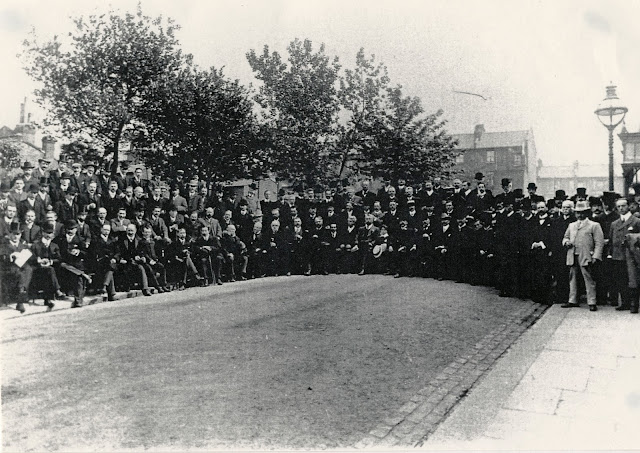100 years ago, on November 10th 1913, John Archer was elected as the 10th Mayor of Battersea. This achievement was also a momentous triumph for equality, with Archer becoming London’s first black mayor. Born in 1863, Archer is famed for his political passion, particularly his campaigns for workers' rights, improved local living conditions and the removal of young people from the workhouse. One particularly heated argument saw Archer seized by his head and feet and ejected from the Council Chamber.

Much of the press
surrounding John Archer’s mayoral campaign was speculation regarding his
ancestry. The Daily Telegraph reported that “his features and colouring are
eloquent of his origin, but his conversation shows no trace of accent, and he
is a man of good education”,
whilst The News Chronicle wrote that Archer had “the bronzed skin and black hair of a Hindu
or Parsee – he laughingly declines to say to what race he belongs, but one
might place his forebears among the lighter people of India – and his
well-dressed, well-groomed appearance is that of a busy
and prosperous business man”. Indeed, Archer is easy to spot in the photograph below, stood to the far right, the only man not to sport a dark suit.
During his election speech, Archer announced to the crowds "You
have made history tonight. For the first time in the history of the English
nation, a man of colour has been elected as mayor of an English borough. That
news will go forth to all the coloured nations of the world and they will look
at Battersea, and say 'It is the greatest thing you have done. You have shown
that you have no racial prejudice, but recognise a man for what you think he
has done.” This powerful speech was still not enough to
quiet many sceptics. Archer finally declared to have
been born “in a little obscure village in England
probably never heard of until now - the city of Liverpool”.
Less than a year after his election, World War I shook the town of Battersea. The Town Hall played a vital role within the borough, becoming a
recruiting office, with a stall outside offering free
Woodbine cigarettes to all the men who signed up. The Lower Hall became a scheduled air raid shelter, whilst the Council Chamber became a courtroom,
trialling conscientious objectors. 25 town hall workers died, commemorated by a
plaque in our upper corridors.
This letter documents John Archer's efforts to instruct local residents about the events leading up to the war. At BAC we remember Archer for his humour, fire and determination to bring about change, and remember those who lost their lives both in Battersea and beyond, during World War I.






.jpg)